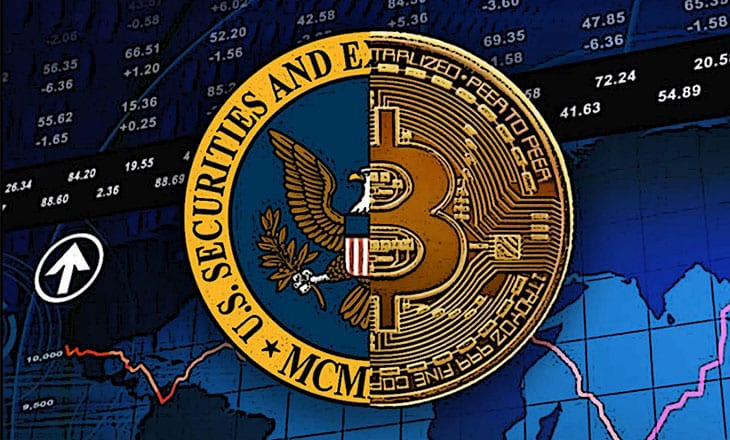When Mati Greenspan, a noted crypto analyst over at eToro, speaks, people tend to listen to what he has to say. In a recent interview on all things crypto, Mati was asked the very question that no one seems to be able to answer – When will the SEC ever approve an application for a Bitcoin Exchange-Traded Fund (ETF)?
Mati’s response:
The idea of the SEC approving a Bitcoin ETF is basically saying that the government is going to approve something that the banks made. I don’t think Bitcoin cares very much about that.
What? Come again? Greenspan figures that the SEC’s approval of the highly anticipated BTC ETF, the vehicle that most crypto enthusiasts believe will open the floodgates to new capital inflows from not only the general public, but also from institutional investors, is, in a word, “inconsequential”?
His current opinion may sound like heresy to the Bitcoin faithful, but Greenspan went on to elaborate on his present thoughts on the topic. In general, after a dozen or so rejections by the SEC of previous application submissions and the recent delays out to late May for decisions on the latest two attempts, the crypto community has good reason to “have gone cold on the idea of an ETF.” Pundits actually now believe the SEC will push the decision dates out to October.
With each denial, the SEC seems to cite the same concerns: potential for price manipulation, lack of proper monitoring software to detect such attempts, the unregulated nature of exchanges, especially those outside the U.S. borders, the lack of reliable volume data, and the propensity for material exchange compromises, due to poor security protocols and the lack of common operating standards. There are industry initiatives designed to remedy these issues, but until their implementation, SEC officials will continue to feel “uncomfortable” about the crypto operating environment.
Greenspan is actually positive about an eventual ETF approval by the SEC. When Bitwise Assets Management presented its recent research on the industry to the SEC, it revealed that fake volume from “wash trading” was predominantly outside the purview of the Top Ten exchanges. Once the fake volume was removed, the nearly $400 million of “real” Bitcoin volume per day was centered in the United States, where exchanges are very nearly compliant with what regulators expect, regarding price manipulation detection, security protocols, and standards that emulate traditional equity exchanges.
Another good sign was that the futures contracts traded on the CME on any given day have at times exceeded this daily average and have easily accounted for a majority of the total daily trading activity, an indication that institutional players are much more active in the crypto space than anyone had previously believed. ETFs typically depend on a robust futures market in order to establish and hedge positions in a given market.
Due to this report, Mati thinks an ETF approval now has a “good shot” of gaining the approval it would need from SEC members. As time goes by and, once again, due to this comprehensive Bitwise analysis, “many more members of the SEC are “more bullish on crypto” which will help sway the rest.” The next hearings are on May 19th and 24th, respectively.
Greenspan also does not discount the impact that these deliberations could have on Bitcoin prices. Either an approval or a denial will have a “significant impact in the price”, but, at the end of the day, “Basically, having an ETF is another vehicle that they [institutions] can invest in Bitcoin, in an easy way.”
Convenience has often been the catalyst for other innovative products and services to acquire public awareness and then rapid adoption by all players. Without a doubt, a BTC ETF will certainly bring convenience to the crypto industry.
